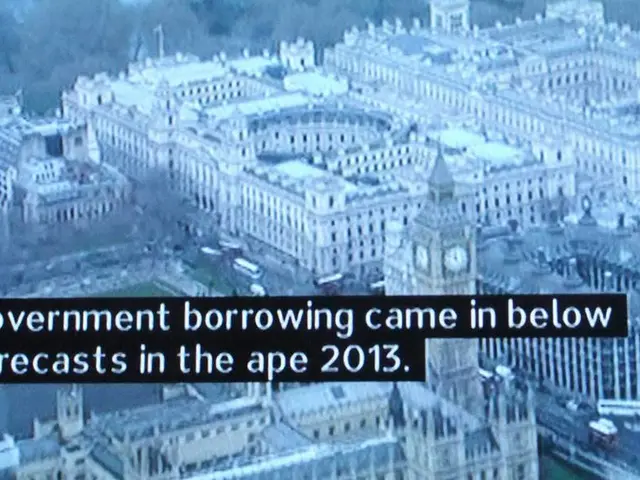FRANKFURT'S FURY
Central Bank anticipated to slash rates further amidst ongoing trade dispute escalation
As U.S. President Donald Trump continues to disrupt global trade with his volatile policies, the European Central Bank (ECB) is bracing for their seventh consecutive interest rate cut in response to the escalating trade war.
Before Trump's whirlwind tariff blitz, the ECB had been steadily reducing borrowing costs due to cooling inflation. Economic growth in the 20-nation Eurozone, however, has become the primary concern, with businesses and households struggling under the pressure of higher rates.
Trump's tariffs have exacerbated the situation, targeting Europe's substantial trade surplus with the U.S. This move has put European exporters on edge, with HSBC predicting a deteriorated near-term outlook due to the recent tariff announcements.
Analysts anticipate a 0.25% reduction in the key deposit rate, bringing it down to 2%, when the ECB's governing council meets on June 5th. However, some believe this June cut might mark the end of the current reduction streak, with a possible pause at the July meeting to assess the latest economic developments.
Despite these cuts, the Fed Reserve in the United States has opted to keep rates stable in light of Trump's tariffs, fearing they may spark inflation. Trump has already unleashed multiple waves of tariffs, with the EU currently facing a 10% baseline tariff, as well as 25% duties on cars, steel, and aluminum.
The ongoing trade war has left a sense of unease in Europe, with ECB President Christine Lagarde commenting that the global economic order is fracturing, and multilateral cooperation is being replaced by zero-sum thinking and bilateral power plays.
But the challenge for the ECB is to protect the Eurozone from Trump's trade policies while maintaining stable inflation. Euro-area inflation was 2.2% in April, slightly above the ECB's 2% target, but recent signs suggest price pressures are easing more quickly than expected. The latest inflation estimate for May will be released by Eurostat on Tuesday, just days before the ECB meeting.
Trade tensions, however, are expected to weigh on eurozone inflation, particularly as the increased tariffs could redirect cheaper manufactured goods from China to Europe.
Rate Cuts, Trade Wars
SourcesInsights, (https://www.bis.org/publ/qtrpdfs/r_qt1907h.htm)CommentsMore
The escalating trade war instigated by U.S. President Donald Trump has compelled the European Central Bank (ECB) to reassess its approach to business and finance, considering rate cuts as a strategy to mitigate the impact on the Eurozone. Some analysts predict that politics will influence the ECB's decision, as the June 5th meeting approaches and inflation figures for May are released by Eurostat.
European businesses have expressed concerns about the potential effect of the ongoing trade dispute on their operations, while some economists believe that protective tariffs could, ironically, increase the flow of general-news headlines about the state of international relations. With the global economic order appearing to fracture, the ECB's task becomes increasingly complex, as it attempts to balance stabilizing inflation with safeguarding the Eurozone from Trump's trade policies.







